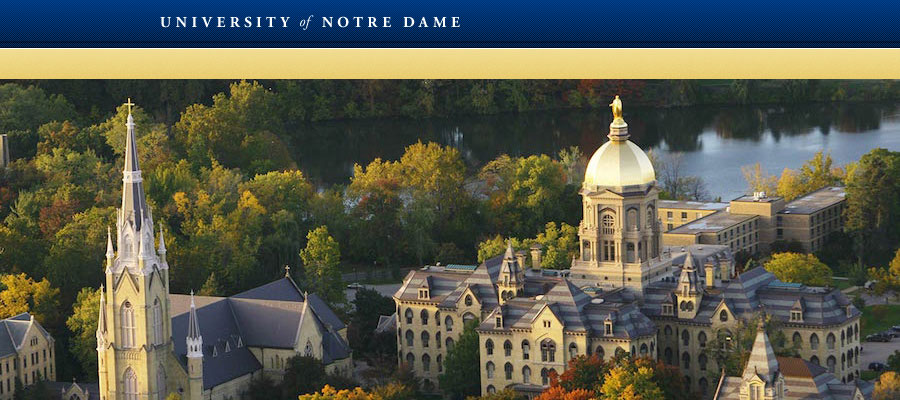The Graduate School at the University of Notre Dame accepts up to two, fully-funded PhD candidates per year in Liturgical Studies. The program in Liturgical Studies integrates three sub-disciplines: Liturgical History; Liturgical Theology; Ritual Studies.
The program offers a wide range of research opportunities with particular strengths in early and late antique Christian ritual and material culture, medieval liturgy, Byzantine Christianity, manuscript studies, contemporary liturgical theology, and ritual studies. Recent dissertations have included topics on ritual at the Second Temple, architecture and liturgy in medieval Salisbury, liturgy and life in Crusader Jerusalem, ritual in Igbo culture, imperial rites for commemorating earthquakes in late antique Constantinople, and ritual and identity in the California Missions.
The Liturgical Studies program was founded in 1947 as the first graduate program in the Department of Theology and quickly grew to become an international center for the study of liturgy. Pioneers in the discipline who have taught at Notre Dame include Josef Jungmann, Louis Bouyer, Robert Taft, Paul Bradshaw, and many others. The program is currently comprised of seven faculty members and represents one of the largest concentrations of liturgical scholars at one place in the world.
In addition to its core strengths, Liturgical Studies offers a variety of opportunities for research collaboration with other institutions at Notre Dame, including the Medieval Institute, the Program in Sacred Music, other departments at the university (esp. History, Anthropology and Sociology) and other programs within the Theology Department, including Christianity and Judaism in Antiquity (CJA), the History of Christianity (HC), and Systematic Theology (ST). The Hesburgh Libraries system has extensive holdings in theology and one of the nation’s largest collections in medieval and Byzantine studies, including the Milton Anastos Collection. The Theology Department also offers a broad range of ancient languages, including courses in Greek, Latin, Syriac, Hebrew, Coptic, Armenian and Ge’ez, with additional opportunities for studying Georgian, Slavonic, and Jewish Aramaic.
All applications must be submitted to the Graduate School by January 2, 2020.
